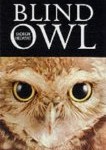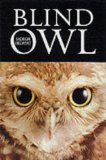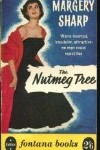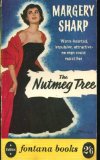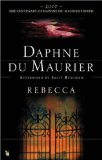Translated from the Persian by D.P. Costello
I was sorting through my bookshop stock when that beautiful picture of an owl caught my attention. I decided that I had to read it when I saw that it was also described as:
a deeply haunting and disturbing gem of world literature.
At only 108 pages it was a very quick read, but I’m not sure that I fully understood what was happening.
The author, Sadegh Hedayat, was born in Iran in 1903, but dedicated his life to the study of Western literature. His books are are now banned in Iran and are coming under increased attack from political Islamists in Europe. He suffered from drug addiction and alcohol problems and committed suicide in 1951.
I think that an understanding of the author’s situation is key to realising the importance of this novella. It is a dark book, filled with thoughts on violence and death. It has a hallucinatory feel, so I found it difficult to grasp what was happening at all times. The book seemed to float from one scene to another, with no real plot.
The writing was poetic, and there were some beautiful descriptions hidden amongst the dark thoughts:
The sun, sucking with a thousand mouths, was drawing the sweat of my body. The desert plants looked, under the great, blazing sun, like so many patches of turmeric. The sun was like a feverish eye. It poured its burning rays from the depth of the sky over the silent, lifeless landscape.
I also loved discovering some of the Persian traditions and it has inspired me to find out more about Iranian culture, but I’m afraid that the negatives of this book far outweighed the positives. It was dark, gruesome and impossible to follow. I felt that some of the scenes were there just to cause outrage and controversy, but perhaps they were just an indication of the authors depressive state. Either way this wasn’t an enjoyable read.
Recommended to people who like weird, depressing books with no plot!
![]()
Have you heard of The Blind Owl before?
Do you enjoy dark, weird books like this?
Can you recommend a more positive book about Iranian culture?
